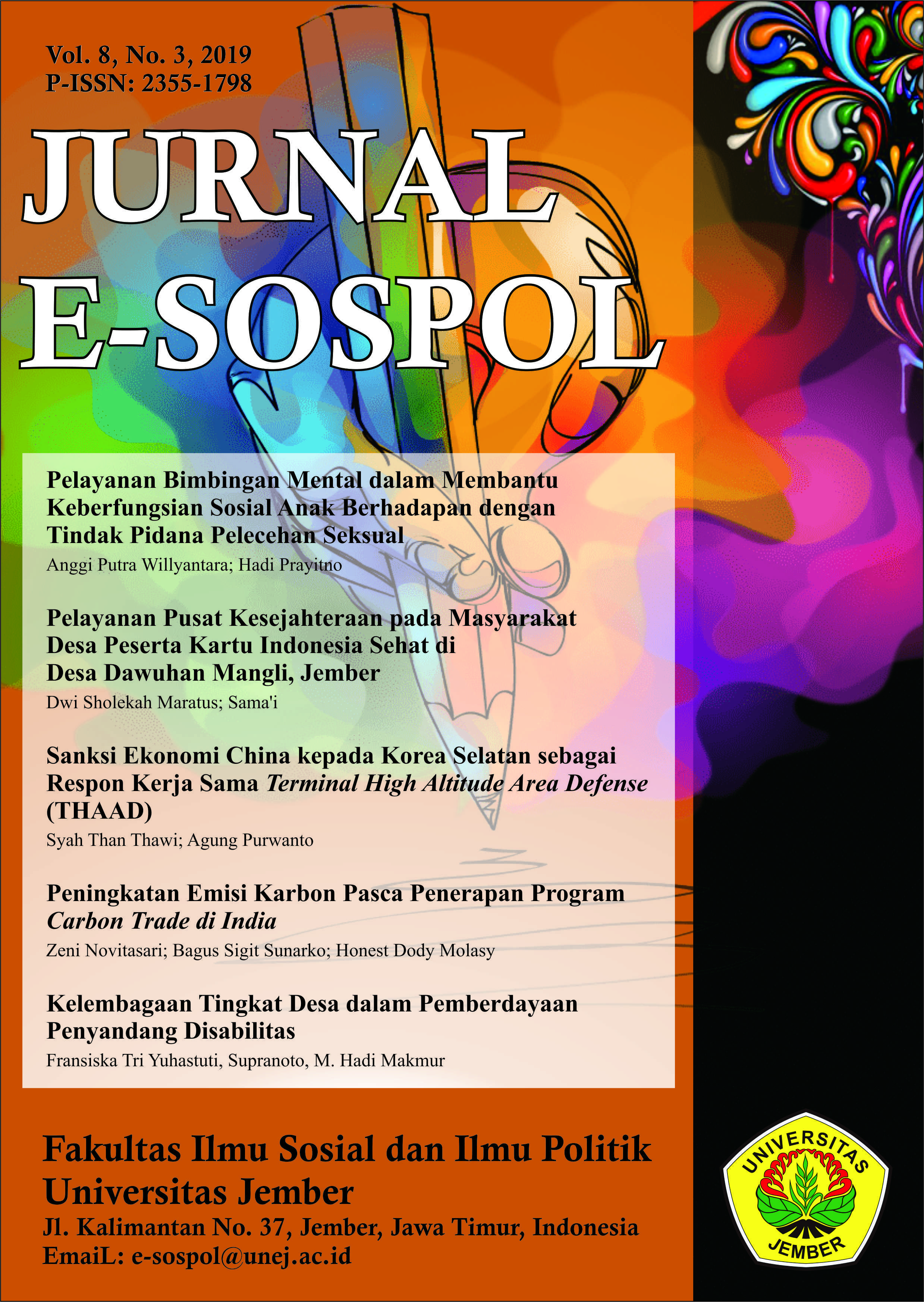Peningkatan Emisi Karbon Pasca Penerapan Program Carbon Trade di India
Abstract
The natural damage phenomenon occurs throughout the world due to global warming. Global warming is caused by increasing the concentration of greenhouse gases in the atmosphere. it begins from the development process, Post-industrial revolution that occurred in the 1700s where there was a change in the use of production equipment that originally used animal or human power to become a machine that uses fuel. The use of uncontrolled fuel causes environmental conditions to change over time. As a result, the world faces problems related to the food, water, soil, social, political and energy crises that impact to human survival. In addition, Increasing the number of human deaths due to natural disasters, air pollution and water pollution are serious threats to human existences. The convention was made politically to reduce the impact of natural damage due to global warming. Carbon trading schemes are expected to help states significantly reduce carbon emissions. However, the implementation of carbon trading is an alternative scheme that can be adapted by the conditions of the country. India implemented the carbon trading scheme as a step to resolve the economic and environmental crisis that has been occurred in its country. Large areas of India's forest, are power to generate funds from carbon trading schemes. The outcome, India become the second-largest country to get funds from carbon trading, but India's carbon emissions increase significantly each year. The increasing of India's domestic emissions affect the total amount of world emissions which means it will threaten the entire world
Downloads
Downloads
Published
Issue
Section
License
Penulis yang mengusulkan naskahnya untuk dapat diproses penerbitannya pada e-SOSPOL dianggap telah menyetujui beberapa hal sebagai berikut:
1. Penulis tidak dapat menarik naskah yang telah usulkan untuk diproses hingga mendapat jawaban dari Ketua Dewan Penyunting atas status naskah artikel ilmiahnya (diterima atau ditolak untuk diterbitkan).
2. Penerbit tidak bertanggung jawab terhadap kasus plagiasi atas artikel yang terbit pada e-SOSPOL
3. Penerbit tidak bertanggung jawab atas data dan isi dari artikel yang diterbitkan pada e-SOSPOL, dan sepenuhnya merupakan tanggung jawab penulis.








